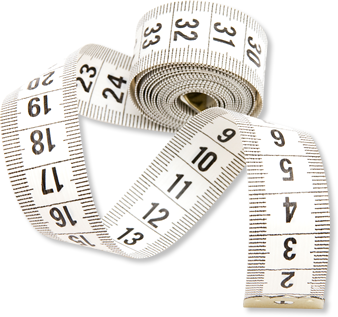Starting a craft business online can seem like a daunting process, however, as long as you have a plan in place, you should be able to go through the start-up process relatively stress free.
In this guide, we’ll discuss how to start your craft business online and the steps you should take to make sure it is successful and legally compliant.
Do crafts sell well online?
Yes, selling crafts online can be extremely profitable and since the growth of online selling sites, many crafters have managed to create lucrative businesses selling their crafts across the UK and even worldwide.
It is a great way to work from home or your studio, set your own hours and produce the products you want to make.
Should you start an online craft business?
If you think your products are perfect for selling online, then starting an online craft business may be the right next step for you and your craft.
Online craft businesses are ideal if:
- You want to be your own boss
- You want a more flexible working life
- You’re unhappy in your current job role
- You think your products would be popular online
Starting an online craft business: The basics
Before you start your online business, there are a few basic steps you need to take.

Find your niche
First of all, you need to decide what your niche is. Even if you already know what craft you’d like to make, it’s worth narrowing it down to the specifics.
For example, if you are an artist, you should consider what you’re going to paint. Are you going to make commissions or do you want to paint based on your own ideas? Are you going to send physical prints or digital versions?
Essentially, since you’ll just be starting to sell online, you will want to refine your initial ideas and then as your business grows, you can start to build out your product line.
Create your website
The next step is to make your website, or decide where you would like to sell your products online. There are many free site building tools available that you can use to make your website in the early stages, such as Squarespace and Shopify. These are relatively easy to use and all come with paid versions when you need to expand your site.
Alternatively, you can use sites such as Etsy, Folksy and Not On The High Street too. These are third party sites that you can use to sell your products and instead of paying to have your own site, you may end up paying listing fees to the site.
Register your business
Once you’ve built your site and you’re ready to start selling, you should move onto registering your business. You could either register as a sole trader or a business depending on the nature of your craft.
For either type of business, you can register online. You will likely have to pay a small fee for registering but it means you will be allowed to legally trade online and across the UK.
Get insured
The next step is to get insured. Although many online stores won’t require you to be insured, it is important that your business is protected if the unexpected was to happen.
Getting insured is vital for ensuring you have adequate protection, especially for small businesses who may not have the current funds to be able to fight expensive legal costs.
Our arts and crafts insurance is ideal for online craft businesses, helping to protect goods, equipment and businesses themselves from losses due to damages, accidents and claims.
We cover a wide range of crafts, many of which are not covered by other providers.

Order and prepare your stock
Once all the important legal jobs are out the way, you can next move onto prepping your crafts and ordering all the stock you expect you’ll need.
If you plan on making custom items, then you may have to make a few mock-up designs to show off your goods to the public. If you have items in mind that you want to sell, then it’s worth making multiples of the product so you have enough stock when your business starts selling.
Don’t forget to order and prep delivery boxes too!
Market your business
Finally, if you aren’t already, you should be marketing your business across social media to make customers aware that you are now selling online. This will help to increase the number of people who see your online store and it can help you reach potential customers who may not have found you otherwise.
For more advice, you can read our full guide on how to start a craft business.
Do you need to register your craft business with HMRC if you’re selling online?
HMRC are becoming increasingly strict on ensuring all businesses are fully declared and compliant with the law.
To save yourself the stress of dealing with HMRC later down the line, we always recommend registering your business with HMRC as soon as possible. This will also make sure you don’t face any unexpected fines.
You can read our guide on how to sell crafts legally to find out more.
Should I sell my handmade goods at craft fairs as well as online?
Yes, selling your handmade goods at craft fairs in another great way to introduce your products to a new audience, especially for the likes of those who don’t shop online like the older generation.
With CraftCover, we can include craft fair insurance alongside your annual craft insurance policy, allowing you to trade safely and legally in person and online. We also don’t limit the number of fairs you can attend, meaning you can sell in person as much as you’d like.



